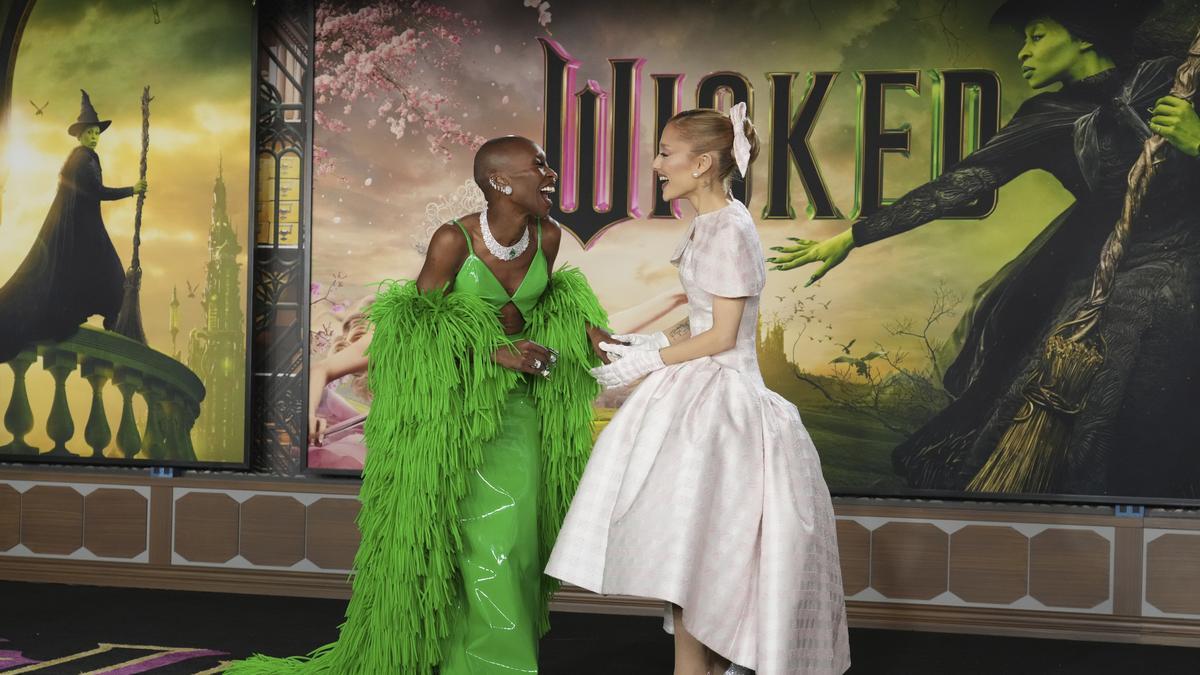
“What if?” This tantalizing proposition often sparks the wildest of ideas, serving as a gateway from the tangible universe to the abstract realm of thought. For those who have found themselves engulfed by Blake Crouch’s mind-bending 2019 novel, “Recursion,” the cinematic release of “Time Cut,” a teen-centric, time-travel slasher film offers a delightful, albeit lighter counterpart. While Helena and Barry’s frantic attempt to unravel the mysteries of False Memory Syndrome pushes boundaries in “Recursion,” “Time Cut” provides a more playful jaunt through the darker aspects of time travel.
The allure of “Time Cut” stems from its refusal to be weighted down by the complexities often tied to journeys through the fourth dimension. Set against the backdrop of Sweetly, April 2003 becomes the scene of a harrowing murder spree. Among the deceased are Summer (played by Antonia Gentry) and her best friend Emmy (played by Megan Best). The killer remains elusive, casting a long shadow over the town that time itself cannot erase. Fast forward to 2024, and we are introduced to Lucy (portrayed by Madison Bailey), an exceptionally bright teenager whose academic prowess has earned her a prized internship at NASA. Lucy, we discover, is Summer’s younger sister, conceived after that fateful year of sorrow. Her parents, Gil (Michael Shanks) and Kendra (Rachael Crawford), have turned their lives into monuments of grief, clutching to the relics of Summer’s room as one would a sacred altar.
On the commemorative anniversary of Summer’s untimely demise, fate propels Lucy backward through time to that cursed year of 2003. Herein lies the crux of the narrative; the teenager is faced with an unimaginable dilemma — she holds the power to thwart the Sweetly slasher, reclaiming not only her sister’s future but also that of the town. This noble act, however, comes with a steep price — the potential erasure of her own existence from the timeline.
.
“Time Cut” injects these life-and-death stakes with a dose of levity, typifying something of a cinematic paradox. Viewers are treated to the humorous plight of a modern teenager struggling in a pre-smartphone era. The retro environment introduces quirky exchanges — bafflement at the modem’s cacophony and the comic absent-mindedness in questioning what Twitter is, contrasted against Lucy’s sage-like future insight to avoid investments in the doomed BlackBerry.
As Lucy navigates this alien landscape of the past, she finds herself forging an unexpected bond with her older sister. Shopping sprees and makeovers lend a refreshing lightheartedness that momentarily steers the plot away from its daunting predicaments. Enter Quinn (Griffin Gluck), a quintessential physics prodigy serving as Lucy’s co-conspirator. In true homage to the genre’s forebears, they are tasked with rebuilding the time machine, predictably lacking a crucial component. Quinn’s wry proclamation, “this is not a Marty McFly situation,” nods humorously to the esteemed ‘Back to the Future’ series.
Despite grappling with a malevolent figure, “Time Cut” manages to radiate an exuberant optimism, wrapped neatly in a bubblegum-styled aesthetic. The narrative weight never veers into the overwhelmingly oppressive; instead, it maintains a buoyant progression culminating in a hopeful resolution. The film knows its place, drifting gently to the periphery even as viewers potentially wrestle with grander questions about the cosmos or contemplate their costumes for a fusion festival like ‘Diwaloween.’
Currently available for streaming on Netflix, “Time Cut” promises an entertaining narrative that doesn’t demand exhaustive introspection but rather encourages an indulgence in its whimsical escapades. The film, while not revolutionary in exploring time travel’s intricacies, stands as a testament to storytelling that prioritizes engagement and enjoyment over heavy deliberation, leaving audiences both satisfied and reflective of time’s ever-constant march.










